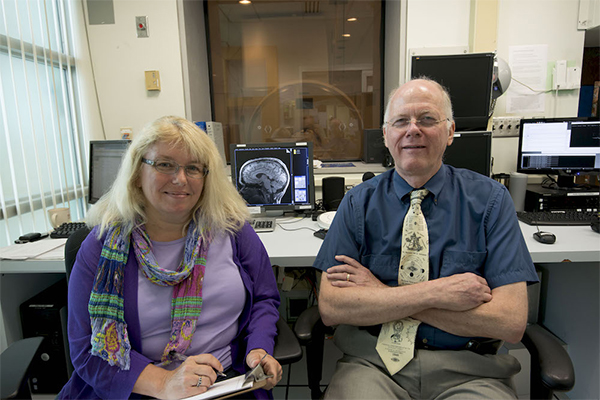Methadone’s side effects, efficacy may be linked to genetic makeup
Methadone — long used to treat pain and addiction — can be lethal if it lingers too long in the body. New research led by the School of Medicine’s Evan D. Kharasch, MD, PhD, has identified genetic subtypes in people that govern methadone clearance, findings that could help prevent some of the 5,000 methadone-related deaths that occur each year in the United States.
Buchman named new head of otolaryngology
Craig A. Buchman, MD, a nationally recognized leader in otolaryngology and head and neck surgery, has been named head of the Department of Otolaryngology at the School of Medicine. He replaces Richard A. Chole, MD, PhD, who, after leading the department for 17 years, is stepping down to focus on research and patient care.
Study reveals new, potent way to boost immunity and fight viruses
Studying mice with a variety of viral infections, scientists at the School of Medicine have demonstrated a way to dial up the body’s innate immune defenses while simultaneously attacking a protein that many viruses rely on to replicate. The findings reveal previously unknown weapons in the body’s antiviral immune arsenal and provide guidelines for designing drugs that could be effective against a broad range of viruses.
Richard Wahl elected to National Academy of Medicine
Richard L. Wahl, MD, the Elizabeth E. Mallinckrodt Professor and head of radiology at the School of Medicine, has been elected to the National Academy of Medicine, formerly known as the Institute of Medicine. Election to this academy is considered one of the highest honors in the field of health and medicine in the United States.
Premature birth appears to weaken brain connections
Babies born prematurely face an increased risk of neurological and psychiatric problems that may be due to weakened connections in brain networks linked to attention, communication and the processing of emotions, according to new School of Medicine research led by Cynthia Rogers, MD.
Gronowski presents on women’s and infants’ health
Ann M. Gronowski, PhD, a professor of pathology and immunology and of obstetrics and gynecology at Washington University School of Medicine in St. Louis, presented a poster on the Women and Infants Health Specimen Consortium at this year’s American Association for Clinical Chemistry meeting.
The brain’s wiring is linked to good – and bad – behavioral traits
The way our brains are wired may reveal a lot about us, according to new research co-authored by scientists at Washington University in St. Louis. For example, people with “positive” behavioral traits, such as sharp memories, many years of education and robust physical endurance, have stronger neural connections between certain brain regions than people with “negative” traits, such as smoking, aggressive behavior and a family history of alcohol abuse.
Green named to U.S. Health & Human Services advisory committee
Jonathan M. Green, MD, associate dean for human studies and executive chair of the Institutional Review Board (IRB) at Washington University, has been appointed to the Secretary’s Advisory Committee on Human Research Protections (SACHRP) within the U.S. Department of Health & Human Services. He will serve a three-year term.
Wright to deliver 2015 Homer G. Phillips Public Health Lecture
John A. Wright, PhD, author and historian, will speak at the 20th annual Homer G. Phillips Public Health Lecture Series at Washington University School of Medicine in St. Louis on Oct. 23. The title of his talk is “Homer G. Phillips and the Ville: Celebrating the Legacy.”
Kharasch named editor-in-chief of journal Anesthesiology
The American Society of Anesthesiologists has named Evan D. Kharasch, MD, PhD, of the School of Medicine, the new editor-in-chief of the journal Anesthesiology. Kharasch will assume the role of editor-in-chief-elect on Jan. 1, 2016, and then officially take on full editorial responsibility July 1.
View More Stories

